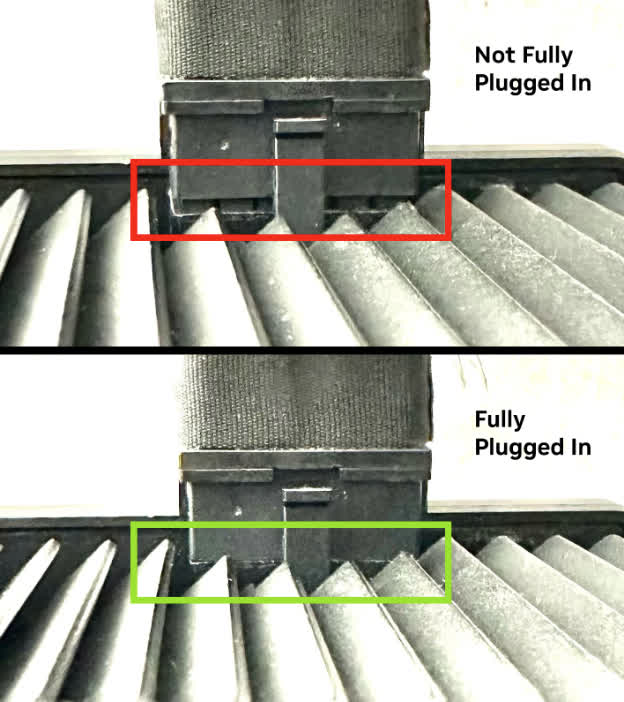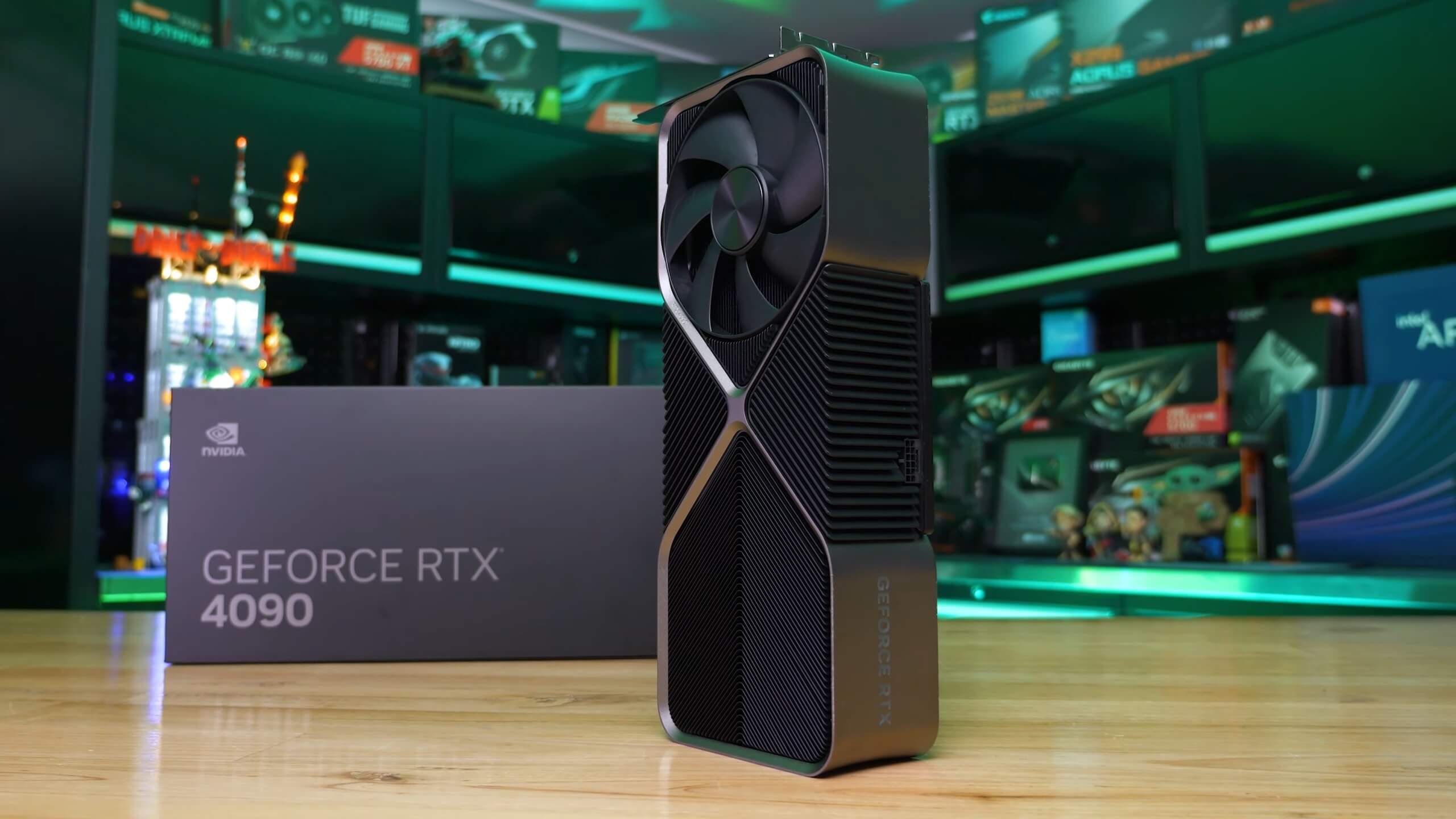A hot potato: Power supply-related controversy has surrounded Nvidia's monstrous new flagship graphics card since before it launched. Users recently criticized the company after reports of melting power cables, but Nvidia claims only a handful of incidents occurred and that it was user error to blame.
Nvidia issued an official statement today regarding instances of melting power cords for the GeForce RTX 4090. The company is aware of about 50 cases worldwide, claiming they result from users improperly plugging in the cables.
The trouble started in late October when Reddit users reported power connectors for the 4090 melting on the end of the cable and the GPU's connection port. Suspicion quickly shifted toward the power adaptors Nvidia shipped with the cards to make them compatible with older power supplies.
The RTX 4090's 16-pin 12VHPWR cables are meant for ATX 3.0 PSUs, but Nvidia knew many customers wouldn't want to spend more money upgrading from their ATX 2.0 models. Multiple outlets have criticized the company's adapter solution.

In September, the Peripheral Component Interconnect Special Interest Group (PCI-SIG) raised a potential over-current issue with the adaptors that Nvidia claims it fixed. An investigation by Igor's Lab found that the adaptors are so fragile that plugging or unplugging them can damage the connections. Cable supplier CableMod warned that bending the cables at a short distance is unsafe.
However, a Gamers Nexus investigation arrived closer to Nvidia's conclusion. It said problems only occur when the connector is pulled at an angle or partially disconnected. The issue could also involve foreign object debris. Like Nvidia, Gamers Nexus estimates the 4090 has an extremely low failure rate.
The controversy escalated further when user [name redacted] filed a class-action lawsuit against Nvidia, accusing the company of committing fraud by distributing dangerous, defective adaptors. Despite findings blaming user error, he claims his experience with GPU installation ensured best practices.
It seems that Nvidia's adaptors are safe for most people if appropriately connected. Users who aren't sure about the pack-in adaptors can find third-party options or upgrade to an ATX 3.0 PSU, which doesn't need an adapter for the RTX 4090. After spending over $1,600 for the graphics card, dropping less than $200 on a PSU is a small extra step.
While AMD tacitly admitted that none of its new RDNA 3 GPUs can directly compete with the 4090, it can claim that they don't need adapters for use with ATX 2.0 power supplies. The Radeon RX 7900 XTX and XT launch on December 13 for $999 and $899, respectively.
